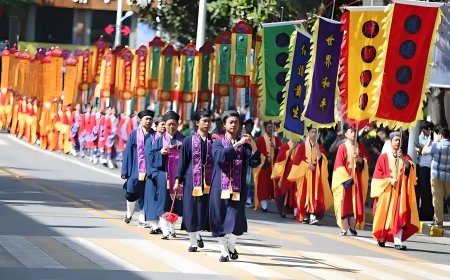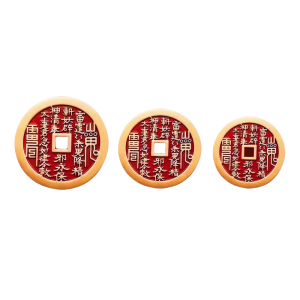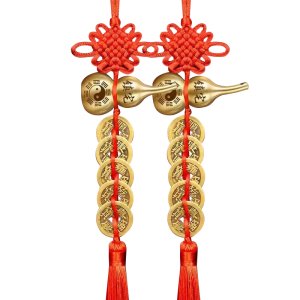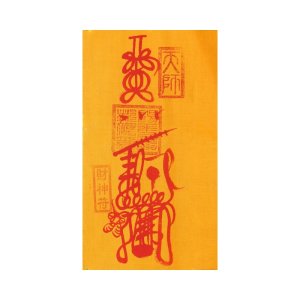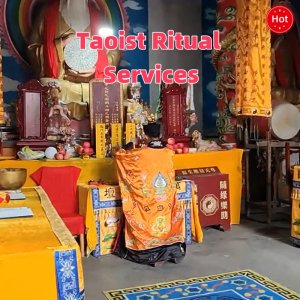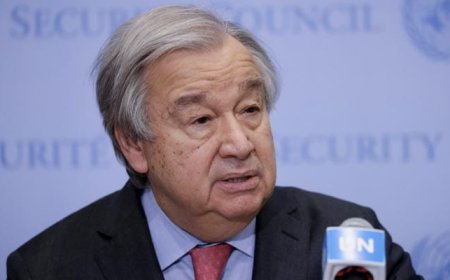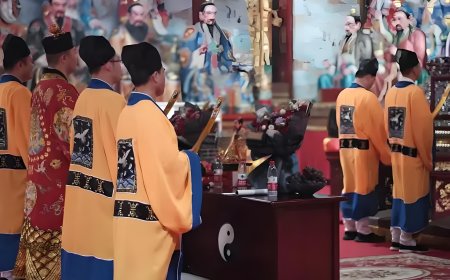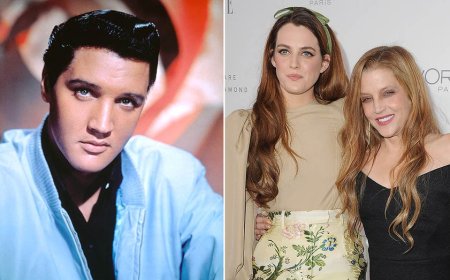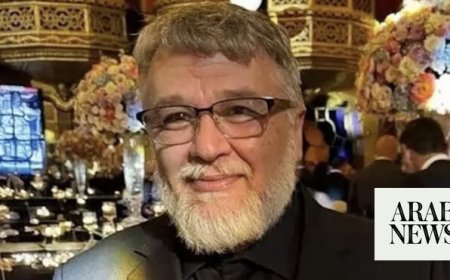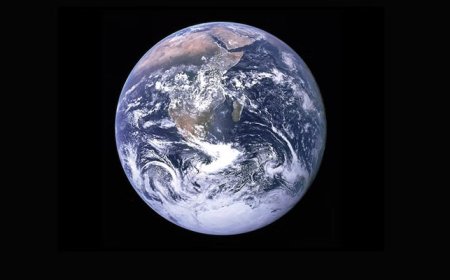Tao Te Ching Chapter One-Chapter Thirty-two
1. Chapter One-Chapter Thirty
Chapter One
Tao (The Way) that can be spoken of is not the Constant Tao’
The name that can be named is not a Constant Name.
Nameless, is the origin of Heaven and Earth;
The named is the Mother of all things.
Thus, the constant void enables one to observe the true essence.
The constant being enables one to see the outward manifestations.
These two come paired from the same origin.
But when the essence is manifested,
It has a different name.
This same origin is called “The Profound Mystery.”
As profound the mystery as It can be,
It is the Gate to the essence of all life.
Chapter Two
As soon as beauty is known by the world as beautiful, it becomes ugly.
As soon as virtue is being known as something good, it becomes evil.
Therefore being and non-being give birth to each other.
Difficult and easy accomplish each other.
Long and short form each other.
High and low distinguish each other.
Sound and tone harmonize each other
Before and after follow each other as a sequence.
Realizing this, the saint performs effortlessly according to the natural Way without personal
desire, and practices the wordless teaching thru one’s deeds.
The saint inspires the vitality of all lives, without holding back.
He nurtures all beings with no wish to take possession of.
He devotes all his energy but has no intention to hold on to the merit.
When success is achieved, he seeks no recognition.
Because he does not claim for the credit, hence shall not lose it.
Chapter Three
By not adoring the worthy, people will not fall into dispute.
By not valuing the hard to get objects, people will not become robbers.
By not seeing the desires of lust, one’s heart will not be confused.
Therefore the governing of the saint is to empty one’s mind, substantiate one’s virtue, weaken
one’s worldly ambition and strengthen one’s essence.
He lets the people to be innocent of worldly knowledge and desire, and keeps the clever ones
from making trouble with their wits.
Acts naturally without desire, then everything will be accomplished in its natural order.
Chapter Four
Tao (The Way) can be infused into the nature and put to use without being exhausted.
It is so deep and subtle like an abyss that is the origin of all things.
It is complete and perfect as a wholeness that can
Round off sharp edges;
Resolve confusion;
Harmonize with the glory;
Act in unity with the lowliness.
Tao is so profound and yet in invisible, It exists in everywhere and anywhere.
I don not know whose Son It is, It existed before heaven and earth
Chapter Five
Nature nurtures all things with the wholeness of complete virtue.
It shows the greatest and perfect kindness by giving life to let all things grow and accomplish
them with the hastening of harvest.
Therefore, according to ancient custom, nature may seem unkind to regard all beings as a
traditional straw dog for sacrifice.
And likewise with a saint, he may seem unkind to regard people as a traditional straw dog for
sacrifice.
The space between heaven and earth is like the bellows, it appears empty yet it gives a supply
that never fails;
The more it moves, the more it brings forth.
Many words lead to exhaustion.
It is better to center on the true essence within.
Chapter Six
Spirit of the valley is immortal.
It is called the mystic nature.
The gate o f the mystic nature is regarded as the root of the universe.
It is everlasting and cannot be consumed.
Chapter Seven
Heaven is everlasting and earth is enduring.
The reason that they are everlasting is because they do not exist for themselves.
Hence, they are long lived.
Thus, although the saint puts himself last, finds himself in the lead.
Although he is not self-concerned, finds himself accomplished.
It is because he is not focused on self-interests and hence can fulfill his true nature.
Chapter Eight
A person of great virtue is like the flowing water.
Water benefits all things and contends not with them.
It puts itself in a place that no one wishes to be and thus is closest to Tao.
A virtuous person is like water which adapts itself to the perfect place.
His mind is like the deep water that is calm and peaceful.
His heart is kind like water that benefits all.
His words are sincere like the constant flow of water.
His governing is natural without desire which is like the softness of water that penetrates through
hard rocks.
His work is of talent like the free flow of water.
His movement is of right timing like water that flows smoothly.
A virtuous person never forces his way and hence will not make faults.
Chapter Nine
Those who overly pride wealth is like the overflowing water which shall cause damages. It is
better to restrain early.
Those who are not content with fame is like polishing the edge of a knife.
The sharper it gets, the easier it is to break.
Wealth and treasures are but illusions that one cannot possess.
Those who are arrogant of their wealth and fame shall invite blame upon oneself.
The nature Tao teaches one to retreat after one’s success and not to hold on to the credit
Chapter Ten
Can one unite the body and the spirit as one and embrace the “Oneness” without departing from
the great Tao?
Can one achieve harmony with such gentleness by holding on to the true spirit within as if the
innocence of an infant?
Can one free oneself from worldly knowledge and cleanse one’s mind, so that no faults shall be
made?
Can a ruler love his people by governing with the natural Way without personal intention?
Can the mystic gate to all life essence be opened or closed without the virtue of the mysterious
nature?
Can one gain the insight of nature and become a wise person without the effort of action?
The mysterious nature creates and nurtures all things without the desire to possess them.
It performs with all efforts without claiming for credit.
It flourishes all beings without the intention to take control of.
Such is the “Mystic Te” or “Mystic Virtue.”
Chapter Eleven
Thirty spokes unite around one hub to make a wheel.
It is the presence of the empty space that gives the function of a vehicle.
Clay is molded into a vessel. It is the empty space that gives the function of a vessel.
Doors and windows are chisel out to make a room.
It is the empty space in the room that gives its function.
Therefore, something substantial can be beneficial.
While the emptiness of void is what can be utilized.
Chapter Twelve
The five colors can blind one’s eyes.
The five tones can deafen one’s ears.
The five flavors can dull one’s taste buds.
The pursuit of pleasures can derange one’s mind.
The hard-to-get valuables can distort one’s behavior.
Therefore, a saint cultivates himself with virtues and does not indulge himself in sensory
pleasures.
He rejects those outer temptations and chooses this True Nature.
Chapter Thirteen
Honor and disgrace can surprise a person.
The greatest distress lies in one’s physical body.
What does it men by “Honor and disgrace can surprise someone?”
Honor is inferior, because one who wins the favor is afraid of losing it.
And one who loses the favor is frightened with distress.
This is the significance of “Honor and disgrace can surprise someone.”
What does it mean by “The greatest distress lies in one’s body?”
We have fear because we worry about our physical self.
If one’s body does not exist, how can one has fear?
Therefore, he who values the world as much as he values himself, can be entrusted with the
ruling of the world.
He who loves the world as much as he loves himself, can be entrusted with the guidance of the
world.
Chapter Fourteen
What cannot be seen is called the invisible.
What cannot be heard is called the inaudible.
What cannot be touched is called the intangible.
These three cannot be examined and comprehended.
And hence are mixed together as one.
This “Oneness” is not much brighter in the sky, as It is not much dimmer on earth.
It is not more glorious in a saint as It is not more fainter in an ordinary person.
It is everlasting and cannot be named.
It is the original void of “non-being.”
This “Oneness” is the Tao which is invisible, and formless.
It may be regarded as vague and intangible.
When the Oneness Tao comes forward, Its front cannot be seen.
When one tries to follow It, one cannot see Its rear.
By abiding with the original Tao, one can master the presence.
He who knows this “Origin,” shall know the teaching and principle of the Great Tao.
Chapter Fifteen
The ancient Tao cultivators were subtle and mysterious.
They were of immeasurable profundity.
Because they were too subtle to be known, so reluctantly they were being described as follow:
Cautious, as if crossing an icy river.
Hesitant, as if fearful of the surroundings.
Reverent, like an honorable guest.
Dispersed, like winter ice began to melt in spring.
Simple and sincere, like a genuine virgin.
Open-minded, like an empty valley.
Harmonized, like the turbid water.
How can one turn the turbid water into clarity?
A person of Tao would maintain peace in order to achieve pureness of the mind.
And therefore shall not be disturbed by the worldly desires.
After achieving pureness of the mind, how can one let it be everlasting?
A person of Tao would unify and harmonize himself with all beings which shall lead to eternity.
Those who abide by this Tao will not indulge themselves in the desire of greed.
It is because of this humbleness that enables one to embrace the original “Oneness,” the Great
Tao.
Chapter Sixteen
Human must achieve the ultimate void and maintain calmness with sincerity in order to observe
the growth and flourish of all beings.
It is in this way that one can understand the law of nature.
All things and beings will eventually return to the original source.
This is called “peace.”
“Peace” means returning to one’s original nature.
This original nature is the eternal law. To know the nature’s law is to be enlightened.
He who is ignorant of the nature’s law shall act recklessly, and thus will invite misfortune.
To know the constant law of nature is to be generous.
Being generous, one is impartial.
Being impartial, one is the sovereign.
Sovereign is the nature itself.
Nature is Tao. Tao is everlasting.
When one’s physical body dies away, Tao still long endures.
Chapter Seventeen
In early ancient mankind, Tao has been in existence in one’s true nature.
Men possess It without knowing.
One then acts with virtue and honor which is inferior to Tao.
The less superior is to act with fear.
And the least superior is to act with disgrace.
This occurs because one does not have enough faith, and hence has no confidence.
The nature of Tao is distinguished by wordless teaching with the natural act of virtue without
action.
As such, people would act effortlessly and harmonize with the Nature Tao.
Chapter Eighteen
When Great Tao declines, virtue of humanity and righteousness shall arise.
When knowledge and intelligence appear, great hypocrisy shall arise.
When the six various family relationships are not in harmony, filial piety and compassion shall
arise.
When a country is in chaos, the loyal officials shall appear.
Chapter Nineteen
Transcend the saint’s teaching and conceal one’s wisdom for potential use, shall benefit the
people a hundred fold.
Extend kindness to its ultimate and then polish to refine one’s righteousness shall help the people
or regain filial piety and compassion.
Employ one’s subtle true nature with exquisiteness and extend one’s personal benefit to share
with others, shall eliminate robbers and thieves.
These three statements are apparent superficial and not sufficient to express the natural “Way” of
the great Tao.
Hence, this is what people should do:
Return to their original true self and embrace the pure “Oneness.”
Refrain selfness and diminish worldly desires.
Chapter Twenty
Enlightenment of the absolute Tao can free a person from worries and sorrow.
How much is the difference between a respectful response and an angry response?
How great is the difference between good and evil?
What people naturally fear, one should also fear.
One’s endless desire can result in negligence of the true nature of life.
People like to pursue after excitement as if they were ascending the terrace in spring and
celebrate a sacrificial feast.
But I alone remain quiet and calm like an infant who is pure and innocent.
And I alone appeared to be lost like one who has nowhere to go.
All people have a surplus, but I alone was simple and left out like a fool.
People seemed bright and shrewd, while I seemed dull.
People like to dispute, while I alone remain quiet.
I am calm and peaceful like the boundless ocean.
I am open-hearted and free like the wind blowing high above the sky without hindrance.
Everyone thinks of themselves as capable and outstanding while I appeared unlearned.
I am the only one to be different from others for I value highly the Great Tao and joyfully act
accordingly.
Chapter Twenty-one
A man of great virtue is one who follows the nature way of Tao.
This Tao is vague and intangible.
Yet, in the vague and void, there is image, there is substance.
Within the profound intangible, there is essence;
This essence is genuine.
In It lies the great faith.
Since the beginning of the world, Tao has been in existence.
Only through It that one can understand the origin of all beings.
How do I know that this is the true essence?
It is through this natural Way
Chapter Twenty-two
To yield is to preserve the whole.
To be misjudged is to be straightened.
To be hollow is to be filled.
To be battered is to be renewed.
To be in need is to possess.
To be abundant is to be confused.
Therefore, the saint embraces the “Oneness” as a standard for the world.
The wise one is not prejudiced, hence he is enlightened.
The wise one is not self-opinioned, hence he is outstanding.
The wise one does not boast of himself, hence he shall receive the credit.
The wise one does not praise his own deeds, hence can long endure.
Because the wise one does not conflict with others and therefore the world cannot contend
against him.
It is not true as the ancients say, “To yield is to preserve the whole?”
Thus the “Oneness” will be honored to him.
Chapter Twenty-three
Words that cannot be heard of are natural.
A gale can not blow for the whole morning.
A rainstorm cannot last for the whole day.
What caused these effects?
Heaven and earth.
Even the actions of nature do not last long.
How much more can human’s behavior last when digressed from the natural Tao?
Thus, one who follows the Great Tao,
When Tao is present, he will benefit the world with Tao.
When Te is present, he will benefit the world with Te.
When Tao and Te are both lost, he identifies himself with the people and benefits them with the
enlightenment of teaching.
One who identifies with Tao is glad to be with Tao.
One who identifies with Te is glad to be with Te.
One who identifies with the loss of Tao and Te is glad to be with the lost.
If one does not have enough faith in “Tao,” how can he assist others to practice with faith?
Chapter Twenty-four
He who raises himself on tiptoe cannot stand firm.
He who walks with strides cannot travel far.
He who is self-opinioned shall not be enlightened.
He who is prejudiced shall not be recognized.
He who brags about himself shall not receive credit.
He who is arrogant shall not make improvements.
In view of Tao, people who are self-centered are like the surplus food and redundant actions in
everyday life.
All things disgust them.
Therefore a person of Tao will not conduct himself in such manner.
Chapter Twenty-five
Something is formed in the chaos, which existed before heaven and earth.
It is quiet and profound.
It stands alone and alters not.
It revolves eternally without exhaustion.
It is regarded as the Mother of all beings.
I do not know Its name, except to call It Tao.
When forced to give It a name, I would call It “the Great.”
The Great is far-reaching.
Far-reaching is infinite.
Infinite is to return to the self-sufficient origin.
Therefore, Tao is great, heaven is great, earth is great, and so is the true-self.
There are four greatness in the universe, and true-self is one of them.
Man models the Way of earth;
Earth models the Way of heaven;
Heaven models the Way of Tao;
Tao models the Way of nature.
Chapter Twenty-six
The heavy is the fundamental of the light. Tranquility is the master of agitation.
Therefore, the saint always conducts himself with the essence of Tao and never departs from It.
Although he is surrounded by the splendor of wealth, he remains to live a simple and ordinary
life.
How can a ruler govern a nation without recklessness if he indulges in power and desire?
He who acts recklessly shall lose the essence of Tao.
He who is agitated with lust and desires shall lose his true nature.
Chapter Twenty-seven
Good deeds leave no signs.
Good words leave no flaws.
Good scheme needs no deliberate plans.
A good lock uses no bolts, yet it cannot be opened.
A good knot uses no rope, yet it cannot be united.
Hence, a saint is always kind by saving other people and rejects no one.
He is always kind by saving all things and therefore nothing is being rejected.
This is the true enlightenment.
Thus, a kind person is the teacher of the unkind.
An unkind person is a lesson for the kind to learn.
He who does not value his teacher and dislikes the valuable lesson, although knowledgeable, is
in fact greatly confused.
This is the fundamental essence.
Chapter Twenty-eight
To know the strong masculine principle, yet abide by the gentle female principle is like being the
valley of the world where all rivers will flow into.
This is alike all virtue which will merge into the subtle Tao.
Being a valley of the world and not depart from the true nature, once can return to original
pureness like an infant.
When one knows the white that is splendor, yet holds on to the black that is humble and lowly.
He can be a standard of the world.
Being a standard of the world and not deviate from true nature, one is able to return to the void
of Tao.
To know what is honor, yet abide by the dishonored, is like a valley of the world which is
modest and humble.
Being the valley of the world makes possible the true virtue to be complete and sufficient.
And hence can return to simplicity.
When the nature of simplicity is being manifested, it results into various vessels.
And by applying the pure simplicity, a saint can master all things.
Hence, the Great Tao is a unified Oneness which cannot be separated apart.
Chapter Twenty-nine
He who wishes to take control of the world and acts upon it,
I can see that he will not succeed.
For the world is a divine vessel,
It cannot be acted upon as one wish.
He who acts on it fails.
He who holds on to it loses.
Therefore some things move forward while some follow behind.
Some try to warm with exhaled air while some try to blow it cold.
Some are strong while some are weak.
Some are successfully accomplished while some are declined and failed.
Thus, the saint avoids all extremes, extravagance, and pride.
Chapter Thirty
One who assists the ruler with the principle of Tao,
Will not use the force of arms to conquer the world.
For such affairs will result in cause and effect.
Wherever the armies touch the land, it is turned into a wasteland of thorns and brambles.
After a war is fought, bad years are sure to follow.
Therefore, one who follows the true nature will understand the principle of cause and effect and
shall not rely upon the strength of force.
By knowing the effect, thus one will not brag.
By knowing the effect, thus one will not boast.
By knowing the effect, thus one will not become arrogant.
By knowing the effect, although one has no choice, one still abides with the principle of cause
and effect and does not resolve into force.
When things reach their prime, they start to age and decline.
This is the life that is diminishing and shall not reach the ultimate essence.
2.
Chapter Thirty-one
Weapons of war are instruments of disaster.
They are rejected by all beings.
Thus a person of Tao will not dwell upon them.
According to the ancient custom of Ying and Yang,
A man of virtue values the left which is represented by Yang.
And a man of war values the right which is represented by Ying.
Weapons are instruments of evil, and are not valued by a man of virtue.
They are only used as the last resort to attain peach when all else have failed.
If their use is necessary, it is best to employ with calmness and tranquility.
Even it if means victory, it is not something pleasant.
Those who rejoice over the victory, enjoy killing.
He who delights in killing will not be favored by the people and shall not bring harmony to the
world.
It is the ancient custom to favor happy events to the left as represented by yang.
While on sad occasions, it is favored to the right as represented by Ying.
When this rite is applied in the army,
The lieutenant general takes the place of the left,
And the commander-in-chief takes the place of the right.
This indicates that war is treated as if it is a funeral service;
For many lives had been killed and hence should be mourned with sorrow.
Therefore, although a victory was won,
It is treated like funeral rite.
Chapter Thirty-two
The universal Tao has no name.
Although It appears in the plainest and may seem small,
It is inferior to nothing.
If the kings and marquises can abide by the Great Tao,
All beings shall act as guests and submit to them.
Heaven and earth will then be in harmony and shall descend sweet dew.
People will not require command and orders,
Yet can treat each other equally with peace.
When Tao is manifested, names were given for the purpose of distinction.
But one must know how to attain the original pureness in order to avoid danger and disaster.
Tao exists in the universe like the rivers and streams that lead to the ocean.
What's Your Reaction?











